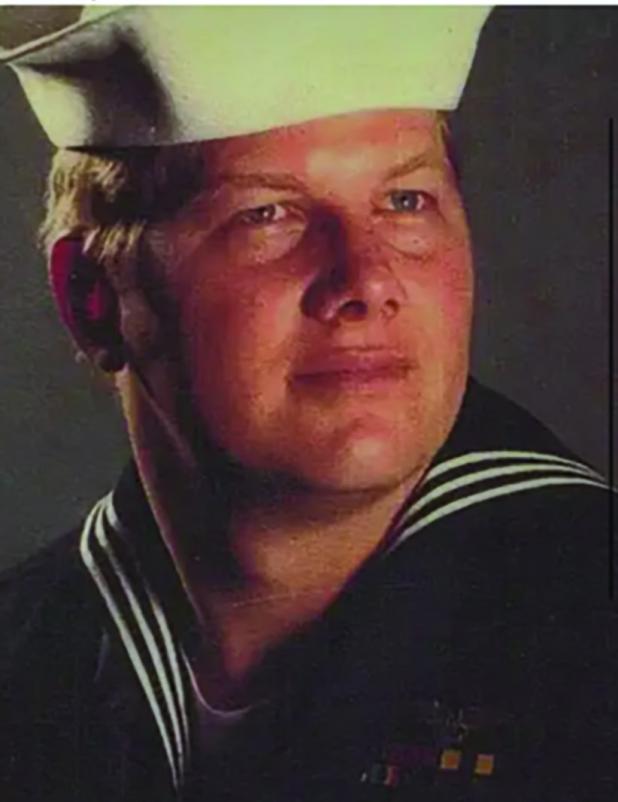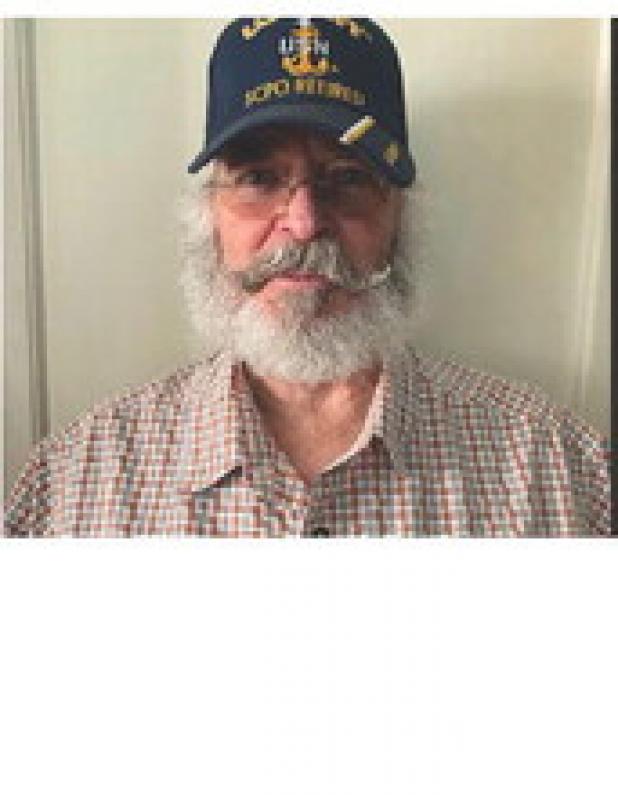

I Joined the Navy Because?
I like this guy. Why? He and I served almost at the same time. He was just a year behind me.
Chris Hunnewell, a born-and-raised Graham, Texas native, took a path less traveled by enlisting in the U.S. Navy in 1976. The Vietnam War had just ended and the military had transitioned to an all-volunteer force, and Hunnewell “was bored to tears and ready to see the world.”
His family had a proud tradition of military service, with ancestors who fought at the Battle of San Jacinto and landed on the beaches of Normandy. Determined to continue the legacy, Hunnewell explored his options and found the Navy’s promise of travel and adventure most appealing. With his fingers crossed behind his back, he told the recruiter he was interested in “higher education and great job training,” but deep down, he knew he was in it for the excitement.
In April 1976, Hunnewell began basic training, immersing himself in the rigid discipline, routine, and camaraderie that defined Navy life. Assigned as a Navy Aviation Ordnanceman, he joined the ranks of the “BB Stackers,” responsible for arming bombs and maintaining weapons systems on aircraft carriers. However, advancement opportunities were limited due to an overabundance of personnel in his field.
Looking for a new challenge, Hunnewell took on temporary duty as a career counselor, guiding sailors on their professional development, educational opportunities, and advancement within the Navy. This role, he said, provided immense personal satisfaction and opened doors to new experiences.
Hunnewell’s naval career spanned some of the most defining moments of late 20th-century military history. In 1980, he was stationed in the Indian Ocean aboard a carrier supporting the ill-fated attempt to rescue 52 American hostages in Tehran.
He also witnessed Muammar Gaddafi’s infamous “Line of Death” challenge in the Gulf of Sidra. When the Libyan dictator threatened bloodshed for any nation that crossed his self-declared boundary, the U.S. Navy responded decisively, shooting down Libyan fighter jets and demonstrating American military dominance.
In 1983, Hunnewell experienced one of the Navy’s darkest moments— the bombing of the Marine barracks in Beirut, which claimed the lives of 241 U.S. service members. The devastating attack, a precursor to modern-day terrorism,
left a lasting impression on him.
Years later, he participated in Operation United Shield, helping evacuate United Nations troops from Mogadishu, Somalia, as warlords attempted to extort military supplies as “rent” for their occupation. When local militias ambushed U.S. Marine positions, the American forces responded with overwhelming firepower, ensuring a safe withdrawal.
Navy life was not all conflict and chaos. Hunnewell traveled to 36 countries, circumnavigating the globe at least three times. He stood on the banks of the Sea of Galilee, explored Rome, Par- is, and London, and participated in time-honored naval traditions. Among his most memorable moments was earning the title of “Shellback” after crossing the Equator, a rite of passage steeped in history.
During his service, Hunnewell had the unique experience of being an extra in the 1980 film The Final Countdown, which depicted a modern aircraft carrier encountering the 1941 Japanese fleet en route to Pearl Harbor. In one scene, he armed a missile for a fictional battle sequence.
Chris said he had a chance meeting with – and frightened – the actor Kirk Douglas as they passed each other in the passageway inside the ship.
Hunnewell also had the honor of shaking hands with Doug Hegdahl, the youngest prisoner of war during the Vietnam War, and received combat training from a former WWII spy stationed behind Japanese lines.
After 20 years of service, Hunnewell retired with multiple commendations, including a Navy Achievement Medal for his recruiting efforts in Houston. He also earned Sea Service Ribbons and Expert Pistol and Rifle medals, demonstrating his skill in marksmanship.
We would probably never make it in today’s Navy, but we can now say with a smile and a retirement check that we’ve been there, done that, seen that. Things that 93 percent of the American public will never have the chance to see or do. We both feel that we are better for having done so, and would not change our past.
Well maybe a little.
